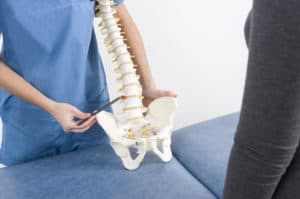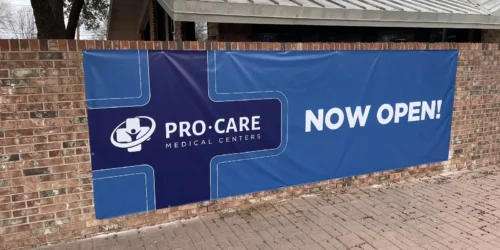
What Does a Herniated Disc Feel Like?
A herniated disc can occur anywhere in the spine, though they are most common in the neck and lower back. If you suffer a herniated disc in your neck, you may experience pain in your neck as well as tingling and numbness that extends into your shoulders and arms. A herniated disc in your lower back can similarly affect your hips, buttocks, and legs. In addition to pain and discomfort, a herniated disc may cause a pins and needles sensation that can be extremely uncomfortable. You may experience numbness in certain areas of your body. People who suffer from a herniated disc also experience an increase in pain with certain movements like after standing or sitting for long periods of time.
What Causes a Herniated Disc?
A herniated disc can be caused by a sudden injury, like a sports or car accident injury. Whiplash is one of the most common car accident injuries, and damage to the neck and spine can lead to a herniated disc. Full contact sports can cause spinal damage that may lead to a herniated disc. However, a herniated disc can also be caused by wear and tear on the body as we age. A herniated disc occurs when the spinal disc weakens or tears due to injury or degeneration. Herniated discs are sometimes referred to as slipped discs because it can seem like the spinal disc has slipped out of place. In actuality, a herniated disc means the inner portion of the spinal disc has slipped out of its thick casing and is putting pressure and compression on nearby nerves.
What Treatments Are Available for a Herniated Disc?
In order to develop a treatment plan for a herniated disc, your doctor must first confirm the diagnosis. A combination of a physical exam and diagnostic imaging tools helps your doctor to determine whether you are suffering from a herniated disc. A physical exam may include assessing your spine and testing your muscle and nerve responses. Your doctor may also want to run diagnostic imaging tools like an X-ray or CT scan to get a clearer picture of the affected area. This can also help to rule out other potential injuries or causes for your pain and other symptoms.
Once a diagnosis has been established, you can begin treatment and start experiencing pain relief from your herniated disc. Chiropractic care offers an all-natural and conservative approach to a herniated disc and its associated symptoms. Chiropractors provide non-invasive treatment options for pain relief and restoring healthy functioning to the spine. Stretching and strengthening the back muscles help to provide better support to your spinal column. Your chiropractor may also use gentle therapeutic adjustments to restore any misalignments in your spine that are contributing to your pain.
Chiropractors can help with herniated discs by restoring the proper alignment of your spine, including the vertebrae and spinal discs that separate them. Your chiropractor may also recommend at-home remedies to try in between sessions, like applying ice to areas where you are experiencing pain. Cold therapy can help reduce any inflammation and provide temporary pain relief by gently numbing the area. Chiropractic care uses drug-free approaches to treat injuries like a herniated disc so you can avoid strong prescriptions with uncomfortable side effects.
Visit a one of our phenomenal chiropractors at Pro-Care Medical Centers to learn more about how you can experience lasting pain relief from a herniated disc. Get started on a personalized treatment plan that addresses your specific injury and healthcare needs so you can get lasting results.



